
Early in the morning of 31 July 1947, two unusual shapes were spotted swinging from eucalyptus trees near Netanya. Recognising them as human bodies, the authorities in this coastal town in northern Palestine soon found notes pinned to the corpses identifying them as Clifford Martin and Mervyn Paice.
These British Army Intelligence Corps sergeants had been kidnapped by insurgents of Irgun Zvai Leumi (National Military Organisation), a nationalist Jewish paramilitary unit. The Irgun had held them in a sealed, soundproof bunker, hoping to use them as bargaining chips to save the lives of three Jews sentenced to hang by the British for their part in a mass prison break – a crime punishable by the death penalty. For 17 days, Martin and Paice were held in a tiny, airless cell; then, after the three Jews were executed, the British men were also hanged – executed, the notes stated, for “criminal anti-Hebrew” activities.
When a British captain cut down Martin’s body, it fell onto an explosive booby-trap – blowing apart that corpse, damaging Paice’s and injuring the officer. The incident enraged the media in Britain, where the Daily Express ran photographs of the hanged men alongside the headline: “Hanged Britons: Picture that Will Shock the World.” There were antisemitic riots across the UK, and British soldiers attacked Jews in Tel Aviv.
This was just one of many violent incidents during British rule of Palestine, which ended in 1948. Gaining a broader picture of that turbulent period, especially the context and legacy of the British Palestine Mandate, is crucial to interpreting the forces that shaped the modern State of Israel – which marks the 75th anniversary of its foundation this spring – and to understanding the roots of the Palestinian situation today.
هذه القصة مأخوذة من طبعة June 2023 من BBC History UK.
ابدأ النسخة التجريبية المجانية من Magzter GOLD لمدة 7 أيام للوصول إلى آلاف القصص المتميزة المنسقة وأكثر من 9,000 مجلة وصحيفة.
بالفعل مشترك ? تسجيل الدخول
هذه القصة مأخوذة من طبعة June 2023 من BBC History UK.
ابدأ النسخة التجريبية المجانية من Magzter GOLD لمدة 7 أيام للوصول إلى آلاف القصص المتميزة المنسقة وأكثر من 9,000 مجلة وصحيفة.
بالفعل مشترك? تسجيل الدخول

Viking mussels
ELEANOR BARNETT digs into archaeological research to recreate a Viking-cum-AngloSaxon seafood dish from medieval York
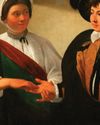
Fingers, frog's and fairies
Fortune telling was all the rage in the 16th and 17th centuries, and practitioners would stop at nothing to tap in to the supernatural. Martha McGill tells a story of Highland seers, tarot cards and encounters with the spirit world
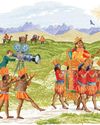
Nothing matches being with Alexander the Great on foot in the Hindu Kush
AT OUR LITTLE FILM COMPANY, MAYA VISION, we recently took the decision to digitise all of the rushes of our key films so that we could dispose of hundreds of boxes of tapes that had been kept in storage, throwing out stuff we thought we would never need again.

Library of the dead
Highgate Cemetery, created as a fashionable resting place for wealthy Victorian dead, is a veritable who's who of London's great and good. PETER ROSS roams the avenues of this most atmospheric necropolis
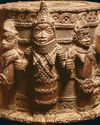
Slavery, exploitation and racism. These tragedies have long dominated histories of Africa. But there's another way to tell this story. And it's one that puts Africans right at the centre of their continent's extraordinarily rich and vibrant past
An 1414, in the Chinese city of Nanjing, a giraffe caused a stir. Amid a crowd of shocked, noble spectators, an official, leading the creature via a rope tied round its face, presented it to China's Yongle emperor. His officials said it was a qilin - an auspicious unicorn - which his sage governance had made appear.

England's forgotten hero
When the Hundred Years' War was reaching a climax, one man was fighting tenaciously to secure the English claim to the French crown. So why, asks Joanna Arman, is Henry V's formidable brother, John, Duke of Bedford, not better known?
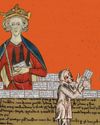
HENRY III AND THE MAGNA CARTA THAT MATTERED
King John's sealing of a charter at Runnymede in 1215 is one of the most feted moments of the Middle Ages. Yet, writes David Carpenter, it was the charter issued by his son 10 years later that became fundamental to England's history
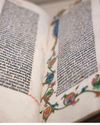
Gutenberg publishes a pioneering new book
‘The printing press triggers an information revolution
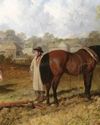
How empire ruptured rural Britain
We know that enslaved Africans and their descendants suffered in the distant colonies of empire. But, as Corinne Fowler explains, the colonial system also had dire impacts on people in the countryside of the 'motherland'
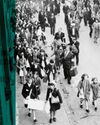
"I FELT VERY ALONE IN A WORLD GONE HORRIBLY MAD"
It was a moment of possibilities, dislocation and dread. Dan Todman tells the story of the 1.5 million urban Britons evacuated to the countryside at the start of the Second World War